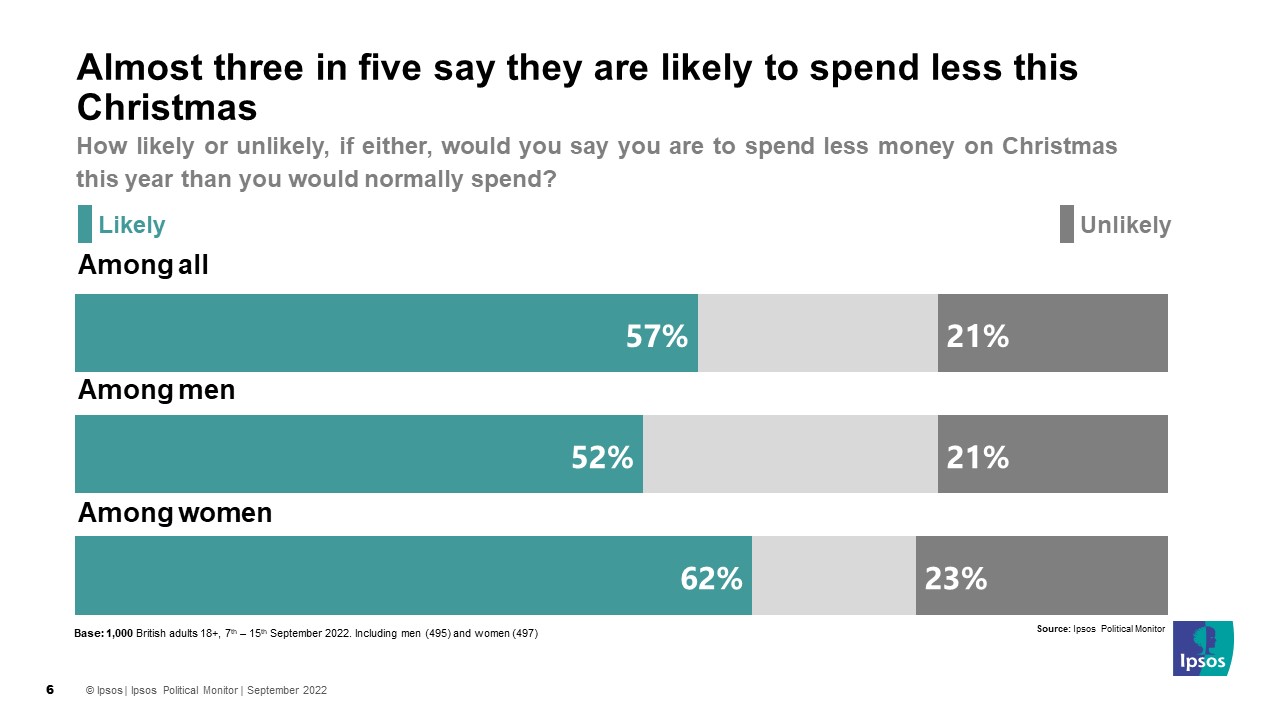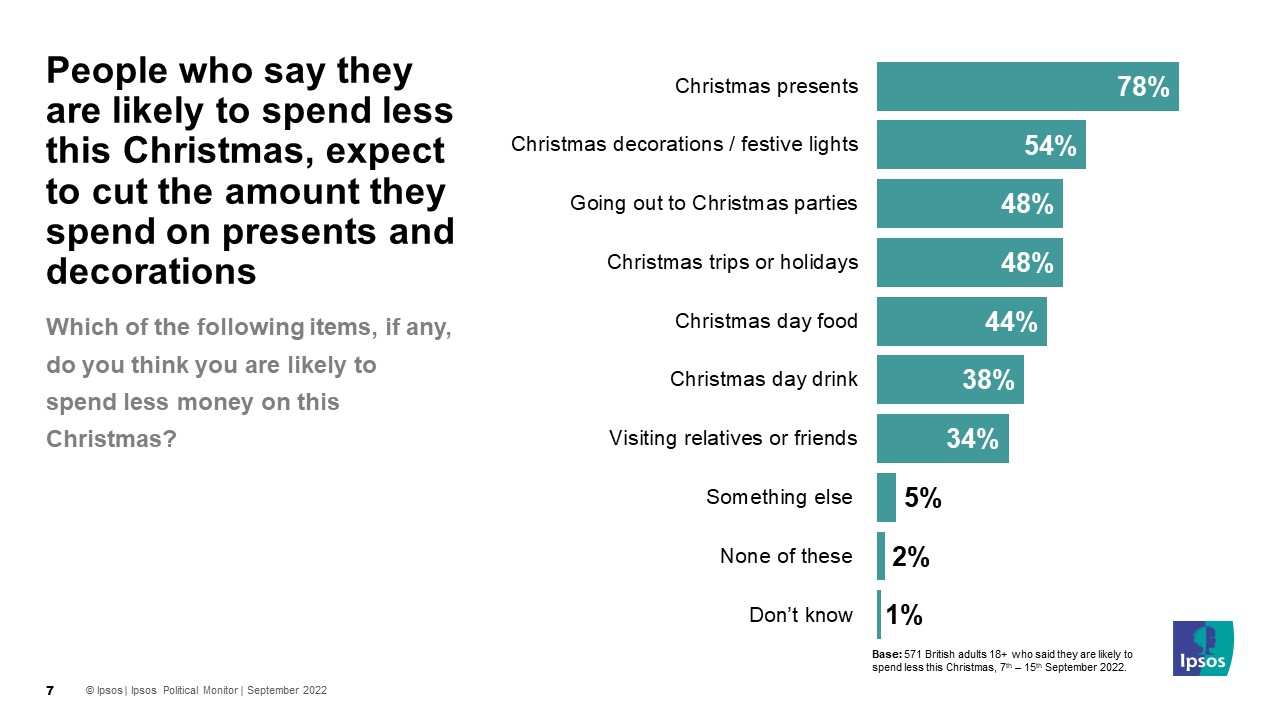Majority of Britons say they are likely to spend less money on Christmas this year compared to normal
- Seven in ten expect the economy to worsen in the next 12 months
- Presents and decorations top the list of items the public expect to spend less on this Christmas
The latest Ipsos Political Monitor, taken September 7th – 15th (before the recent mini budget announced by Chancellor Kwasi Kwarteng), shows strong public concern about the economy, with a majority expecting to spend less on Christmas this year than they usually would.
Christmas spending plans
- When asked how likely they are to spend less this year at Christmas compared to normal, almost 3 in 5 (57%) said they expect to spend less this year. Over a third (37%) say they are very likely to spend less this year (20% said they were fairly likely). Women were more likely than men to say they were likely to reduce their spending this year compared to normal (62% compared to 52%).
- 1 in 5 (21%) said they are unlikely to spend less this year, compared to normal. 16% said they think it is neither likely nor unlikely that they will change their spending this Christmas.

When asked about what they would be likely to spend less money on this Christmas, those who said they would spend less said:
- Almost 4 in 5 (78%) said they would be likely to spend less on Christmas presents this year compared to normal.
- Over half (54%) said they were likely to spend less on Christmas decorations and festive lights this year.
- Just under half (48%) said they would be likely to spend less on Christmas trips or holidays and going out to Christmas parties this year.

Economic optimism
- 71% expect the economy to worsen in the next 12 months (+2 points from July). Just 15% expect it to improve (-1 points from July). 10% expect it to stay the same (no change from July 2022). This gives a net Ipsos Economic Optimism Index score of -56, which is slightly worse than the score in July (-53). As a reminder, this research was conducted before the recent economic announcements and mini budget from Chancellor of the Exchequer Kwasi Kwarteng.

Gideon Skinner, Head of Politics at Ipsos, UK, says of the findings:
The lack of a political honeymoon for Liz Truss is likely linked to the lack of an economic honeymoon as she starts as PM. Economic optimism remains low, and as the cost of living continues to sit at the top of voters’ agenda many predict they will have to cut back at Christmas too – especially women, the middle-aged, mortgage holders and renters. While global factors are also blamed, people are increasingly holding government policies responsible, so the Prime Minister and Chancellor will want to use the party conference to start to restore public confidence in their economic plans.
Technical note
Ipsos interviewed a representative sample of 1,000 adults aged 18+ across Great Britain. Interviews were conducted by telephone: 7th to 15th September 2022. Data are weighted to match the profile of the population. All polls are subject to a wide range of potential sources of error.






